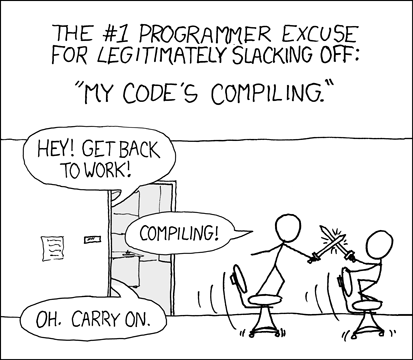I am old enough to remember a programming language called “the last one” which was in the 80 going to stop the need for programmers, it was shortly followed by “the very last one” where did these things go.
I then worked on a SQL extraction for the NHS in the UK which interrogated 2 databases on 2 different Linux boxes using a link on the relational database it took over 4 hours to run … Such a shame I had to spend the time in the gym or local pool. I miss work like this.
I remember once way back in the 70’s when I was installing a large application on the mainframe called CICS. As I recall, the installation had close to 80 jobs to run and I used my ID for the job name.
The next day I was asked by my supervisor who was ask by his boss what I was I doing running so many jobs on the computer.
I remember setting up a database in a CP/M system. Just a simple Fortran program, I thought, but it failed repeatedly.
The Assistant Chief asked what was taking so long, and I was able to demonstrate to him that there was a bug in one of the Fortran I/O libraries, and that I had to delve into 8086 assembler to fix it.
You can make anything work, but sometimes the time cost is astronomical.
That’s something Gentoo users could also use ![]()
30 something years ago - CICS was the main thing the mainframe I “operated” ran (I use the term loosely - because I was a barely trained monkey doing 24x7 [actually 7:00 am to 22:51 {public service}] and our 4381 only ran CICS applications, the head office mainframe [in Canberra - but I think the DC was on the outskirts of Sydney] also ran IMS).
My main claim to fame was managing to create TWO “syslogb” instead of a “sysloga” alongside the “syslogb” - I had my boss and offsiders stumped - “how did he manage to create 2 x syslogb???”…
I seem to remember that IBM did something similar with AIX (never did AS/400) - weekly backups using mksysb (or mksysa) or something… IBM were shit at doing stuff that humans might find useful or “workable”…
